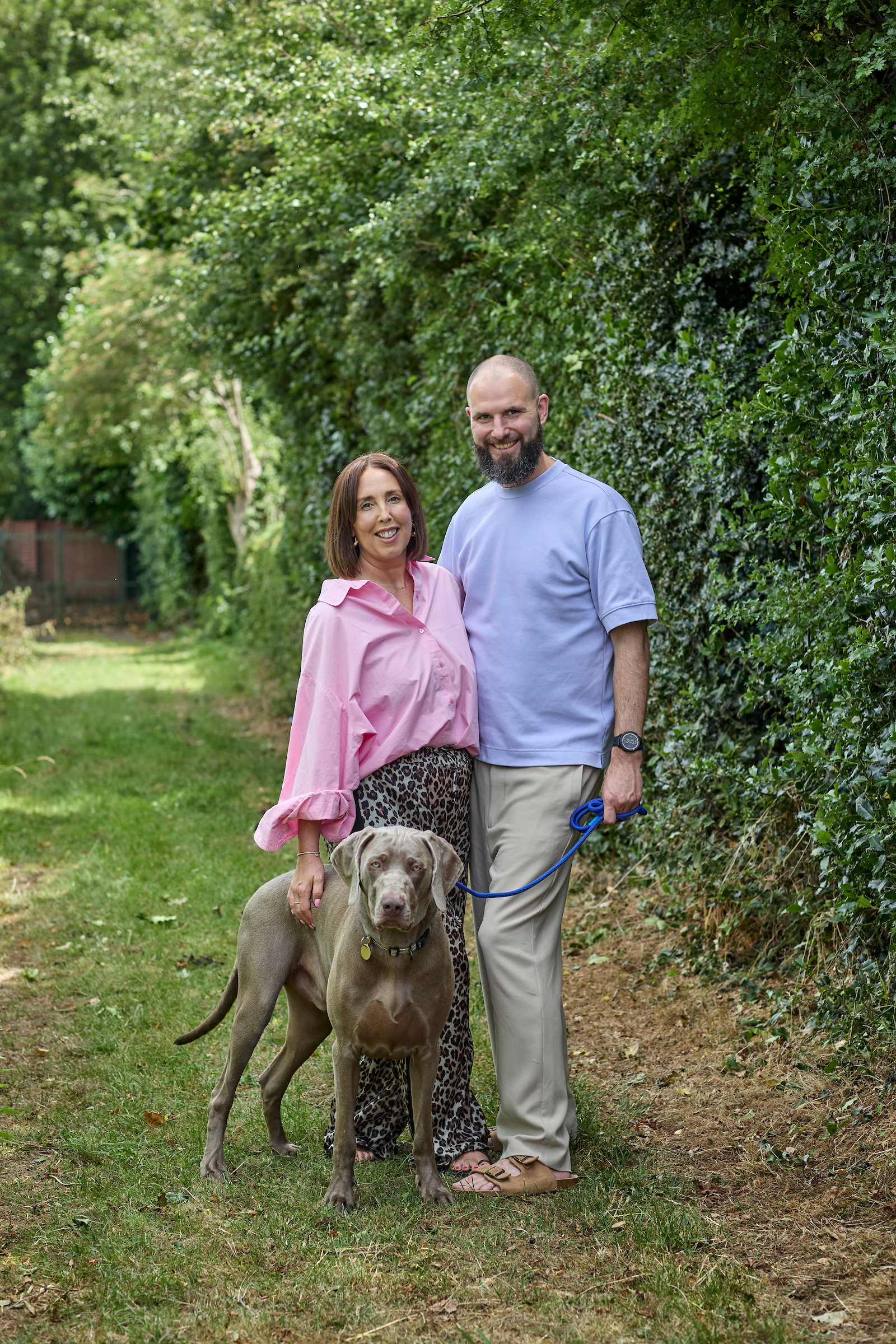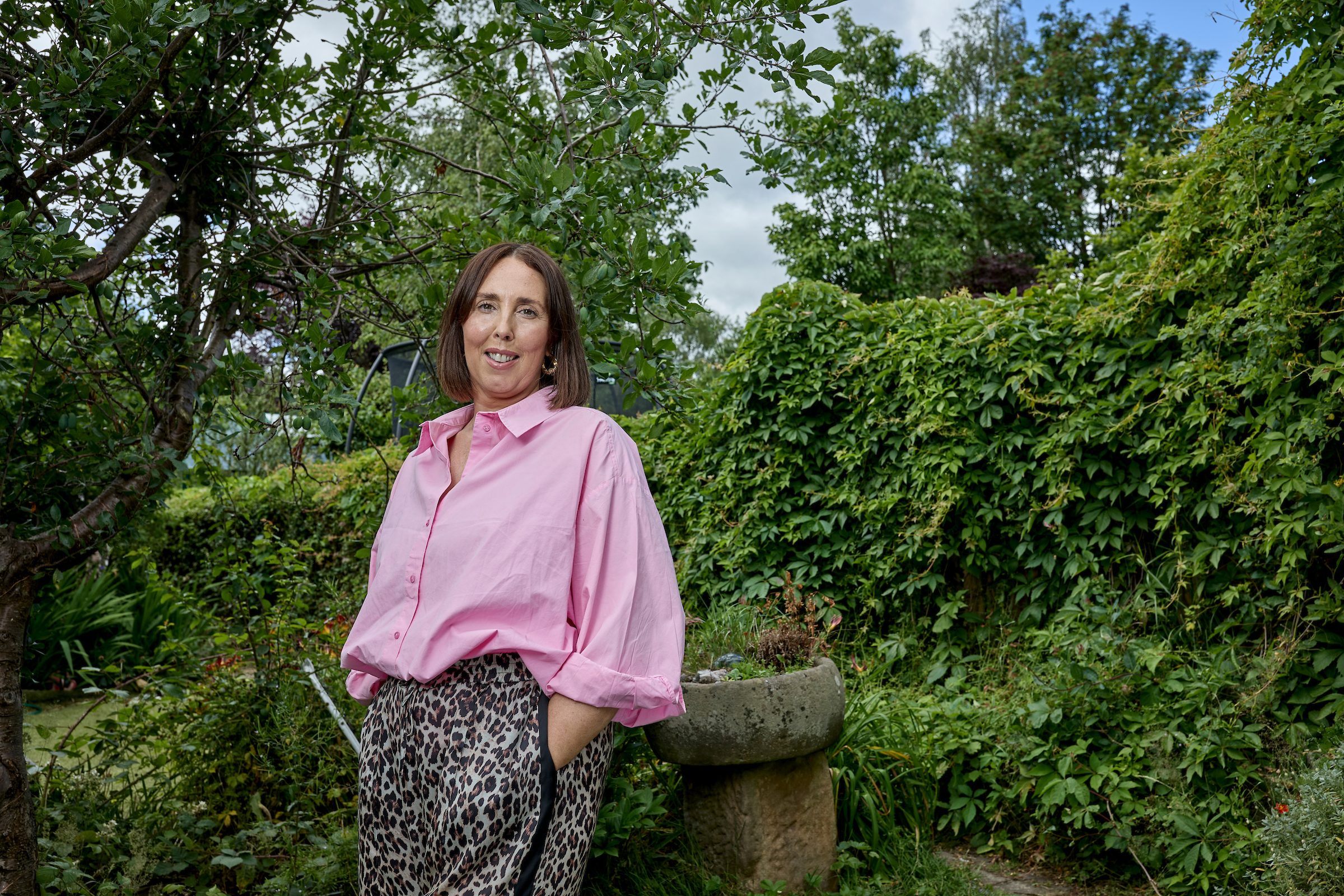Sally in her garden. Credit: John Angerson
Sally Steadman-South, a mother of two from Sheffield, was diagnosed with melanoma in 2014 at the age of 34, after visiting the GP about a small mole on her chest.
“By the time I’d had the operation to remove it, it must have already been too late. I found a lump in my armpit a year later and then we learned the cancer had spread.
A regular gift from you will help us uncover how melanoma develops, grows and spreads – so we can discover the next generation of smart, targeted treatments and save more lives.
“While I was undergoing treatment, the cancer returned to the lymph nodes in my armpit. They were taken out but, four months later, it appeared in a node near my clavicle. I was just unlucky. And at the age of 37 I was diagnosed with stage 4 melanoma.
‘The cancer was spreading’
“I started immunotherapy, but I couldn’t continue on it. The cancer was spreading, and I was so unwell.”
In 2018, she was put on the targeted drugs, dabrafenib – a treatment underpinned by our science – and trametinib.
“At that point I thought I only had months left, so I just didn't have any longer-term plans. I just wanted to turn 40 and see the kids start secondary school.
“Here I am now – 45 years old. My son has just finished his GCSEs, and my daughter is turning into an amazing young woman, just before my eyes.”
Last year Sally was told the devastating news that a tumour had been found in her brain.
“I thought ‘that’s it, the drugs are failing’. But then I had targeted radiotherapy treatment on my brain. I was able to carry on taking the targeted treatments and they’re continuing to work. The brain tumour has now disappeared. I go from scan to scan hoping that the drugs continue to work.

Credit: John Angerson
‘More treatments are needed’
“But what I need, and what the melanoma community needs, is new research to discover more treatments that work which can help people like me live longer and live well. Unlocking immunotherapy, so it works for everyone, would be amazing, and we need to find out why cancer can become resistant to dabrafenib and trametinib – and how we prevent that.
“That's why I'm happy to be part of any of the work that The Institute of Cancer Research does, because it helps me channel some of the hope that I need to have to stay afloat.
“Every day is valuable. My family and I still have more memories to make together.”
Your support will help our researchers make more life-saving discoveries, giving people with melanoma precious extra time with their loved ones.
